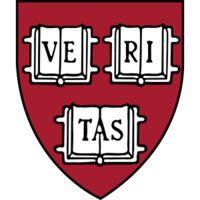预约演示
更新于:2025-07-23
Lactacystin
乳胞素
更新于:2025-07-23
概要
基本信息
非在研机构- |
权益机构- |
最高研发阶段临床前 |
首次获批日期- |
最高研发阶段(中国)- |
特殊审评- |
结构/序列
分子式C15H24N2O7S |
InChIKeyDAQAKHDKYAWHCG-RWTHQLGUSA-N |
CAS号133343-34-7 |
关联
100 项与 乳胞素 相关的临床结果
登录后查看更多信息
100 项与 乳胞素 相关的转化医学
登录后查看更多信息
100 项与 乳胞素 相关的专利(医药)
登录后查看更多信息
1,755
项与 乳胞素 相关的文献(医药)2025-08-01·VETERINARY MICROBIOLOGY
The ubiquitin-proteasome system is essential for efficient propagation of Pseudorabies virus
Article
作者: Li, Xiangdong ; Wang, Wenqiang ; Zhang, Zhendong ; Lu, Yi ; Zhu, Zhenbang ; Wen, Wei
Pseudorabies virus (PRV) is a pathogen that affects multiple animal species and can infect nearly all mammals, with pigs being its natural host. PRV infection in pigs causes significant economic losses in global pig industry. The ubiquitin-proteasome system (UPS) plays a crucial role in cellular protein homeostasis by regulating protein quality. Nevertheless, the interplay between PRV and UPS is not well understood. In this study, We investigated the role of UPS in PRV replication. We found that the proteasome inhibitors (MG132, Lactacystin, and Bortezomib) significantly decreased PRV replication in a dose dependent manner. The suppression of the UPS primarily occurs at the early stage of virus replication. MG132 impaired the PRV uncoating process. In addition, PRV infection dramatically reduced the expression of poly-ubiquitin and free ubiquitin. Ectopic expression of ubiquitin in MG132-treated cells partially mitigated the inhibitory effect of MG132 on PRV proliferation. These findings suggest that PRV exploits the UPS to enhance its own replication.
2025-05-01·EUROPEAN JOURNAL OF PHARMACEUTICAL SCIENCES
GDNF reduces fibril-induced early-stage alpha-synuclein pathology after delivery of 20S proteasome inhibitor lactacystin
Article
作者: Pasculli, Maria Samuela ; Airavaara, Mikko ; Parkkinen, Ilmari ; Domanskyi, Andrii ; Trepczyk, Karolina ; Chmielarz, Piotr ; Er, Safak ; De Lorenzo, Francesca ; Luk, Kelvin ; Seelbach, Anna ; Jankowska, Elzbieta
Failures in protein homeostasis are linked to Parkinson's disease (PD) and other neurodegenerative diseases. Lewy bodies, proteinaceous inclusions rich in phosphorylated alpha-synuclein are a hallmark of PD. Glial cell line-derived neurotrophic factor (GDNF) can eliminate Lewy body-like inclusions in mouse dopamine neurons. This study explores whether GDNF has protective effects against alpha-synuclein protofibril toxicity under proteasome inhibition by lactacystin, both in vitro and in vivo. GDNF did not shield midbrain dopamine neurons from lactacystin-induced neurodegeneration, but still prevented phosphorylated alpha-synuclein accumulation. In vivo experiment with control or GDNF-expressing viral vectors assessed alpha-synuclein pathology spread in the nigrostriatal pathway and lactacystin-caused damage in the midbrain. GDNF overexpression reduced phosphorylated alpha-synuclein inclusions. Lactacystin-treated mice showed motor asymmetry and decreased spontaneous activity, exacerbated without AAV-GDNF pre-treatment. However, GDNF's neuroprotective effect could not be confirmed in vivo, due to side-effects from overexpression in the midbrain. Importantly, these findings show that GDNF continues to eliminate alpha-synuclein aggregation despite lactacystin-induced proteasome inhibition. Activating neurotrophic signaling pathways may protect against alpha-synuclein pathology in PD, even with impaired protein degradation mechanisms.
2025-03-15·INTERNATIONAL JOURNAL OF CANCER
Therapeutic potential of targeting the FLNA‐regulated Wee1 kinase in adrenocortical carcinomas
Article
作者: Berruti, Alfredo ; Nozza, Emma ; Barbieri, Anna Maria ; Mangone, Alessandra ; Hantel, Constanze ; Maioli, Sara ; Marra, Giusy ; Sigala, Sandra ; Peverelli, Erika ; Baldari, Ludovica ; Catalano, Rosa ; Esposito, Emanuela ; Cassinotti, Elisa ; Mantovani, Giovanna ; Palmieri, Serena ; Geginat, Jens ; Ferrante, Emanuele ; Di Dalmazi, Guido
Abstract:
Filamin A (FLNA) is poorly expressed in adrenocortical carcinomas (ACC) compared to adenomas (ACA). Its presence is associated to a less aggressive tumour behaviour, potentially due to its role in negatively regulating IGF1R signalling. Upregulation of G2/M Wee1 kinase was shown in FLNA‐deficient mouse neural progenitor cells, and it has been reported in several tumours. This study explored Wee1 expression in ACC and its regulation by FLNA, the effects of Wee1 inhibitor AZD1775, and the impact of FLNA on its efficacy in ACC cell lines and primary cells. Analysis of FLNA and Wee1 proteins revealed elevated Wee1 and reduced FLNA in ACC compared to normal adrenal gland. FLNA knockdown increased Wee1 protein in NCI‐H295R, MUC‐1, and in primary ACC cells. Higher p‐CDK1 and cyclin B1 were shown in FLNA‐silenced MUC‐1, while decreased Wee1, p‐CDK1 and cyclin B1 resulted after FLNA overexpression. Wee1 reduction was reverted by lactacystin treatment and FLNA transfection increased p‐Wee1 (Ser123), suggesting FLNA's role in targeting Wee1 for degradation. AZD1775 dose‐dependently reduced proliferation and viability in ACC cell lines and primary cultures, and it triggered MUC‐1 cell death. Similar effects were induced by Wee1 silencing. FLNA depletion augmented AZD1775's efficacy in reducing proliferation and potentiating apoptosis in MUC‐1 and primary cells. In conclusion, we demonstrated that FLNA regulates Wee1 expression by promoting its degradation, suggesting that low FLNA typical of ACC leads to increased Wee1 with consequent cancer cells growth. It proposes Wee1 inhibition as a new potential therapeutic approach for ACC, particularly for those lacking FLNA.
100 项与 乳胞素 相关的药物交易
登录后查看更多信息
研发状态
10 条进展最快的记录, 后查看更多信息
登录
| 适应症 | 最高研发状态 | 国家/地区 | 公司 | 日期 |
|---|---|---|---|---|
| 神经母细胞瘤 | 临床前 | 美国 | 1995-05-05 |
登录后查看更多信息
临床结果
临床结果
适应症
分期
评价
查看全部结果
| 研究 | 分期 | 人群特征 | 评价人数 | 分组 | 结果 | 评价 | 发布日期 |
|---|
No Data | |||||||
登录后查看更多信息
转化医学
使用我们的转化医学数据加速您的研究。
登录
或

药物交易
使用我们的药物交易数据加速您的研究。
登录
或

核心专利
使用我们的核心专利数据促进您的研究。
登录
或

临床分析
紧跟全球注册中心的最新临床试验。
登录
或

批准
利用最新的监管批准信息加速您的研究。
登录
或

特殊审评
只需点击几下即可了解关键药物信息。
登录
或

生物医药百科问答
全新生物医药AI Agent 覆盖科研全链路,让突破性发现快人一步
立即开始免费试用!
智慧芽新药情报库是智慧芽专为生命科学人士构建的基于AI的创新药情报平台,助您全方位提升您的研发与决策效率。
立即开始数据试用!
智慧芽新药库数据也通过智慧芽数据服务平台,以API或者数据包形式对外开放,助您更加充分利用智慧芽新药情报信息。
生物序列数据库
生物药研发创新
免费使用
化学结构数据库
小分子化药研发创新
免费使用
